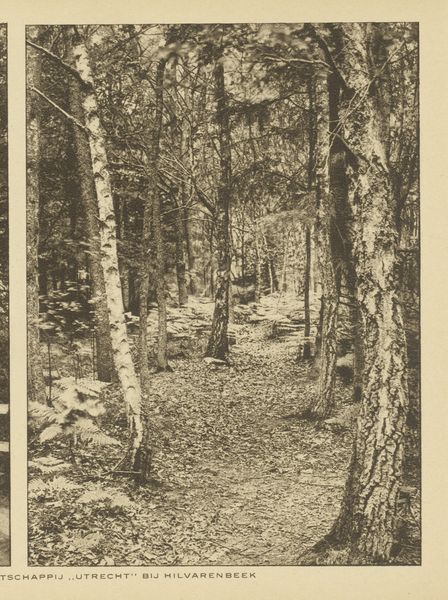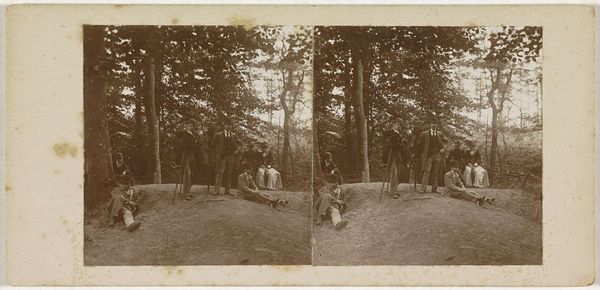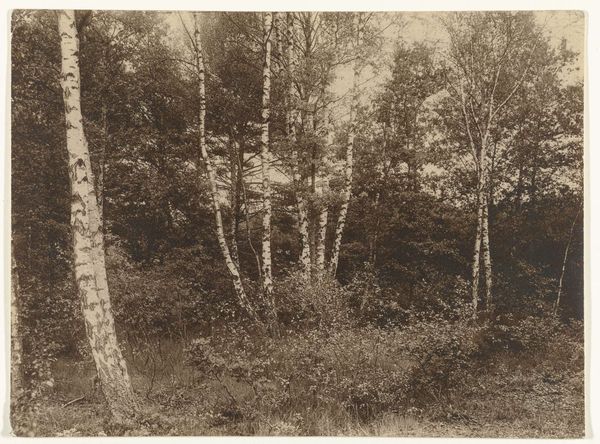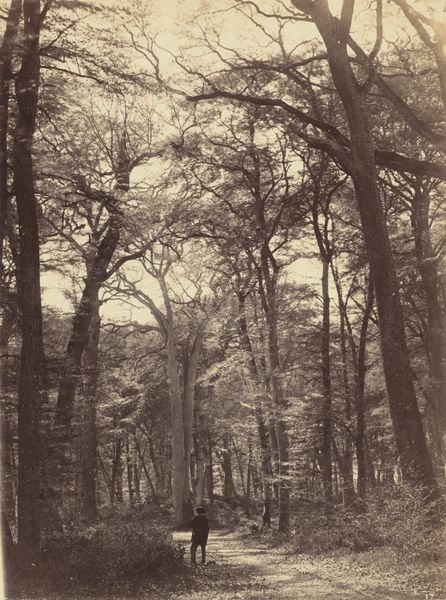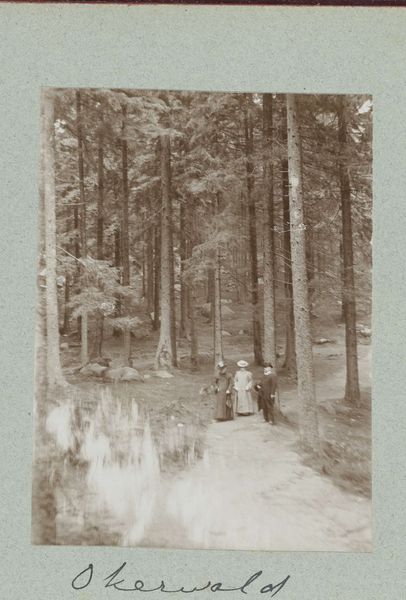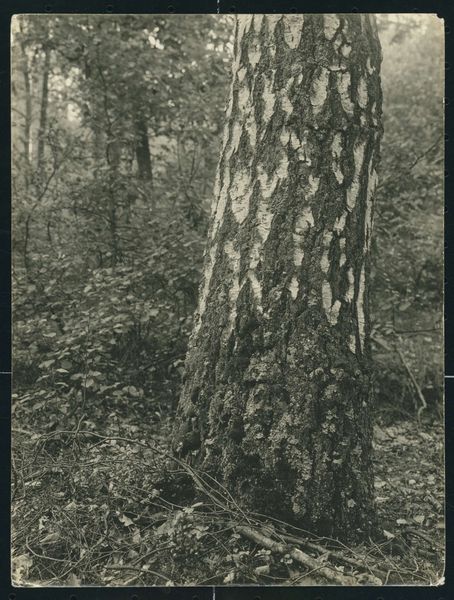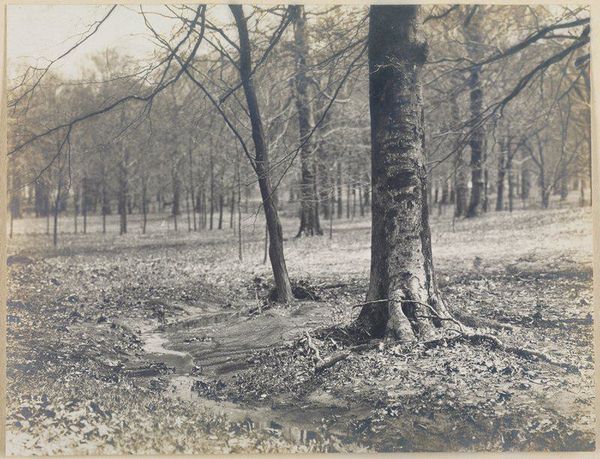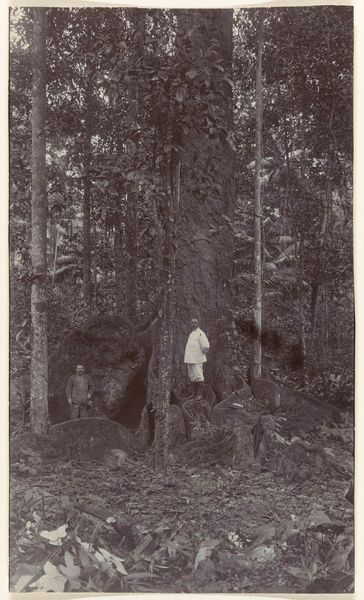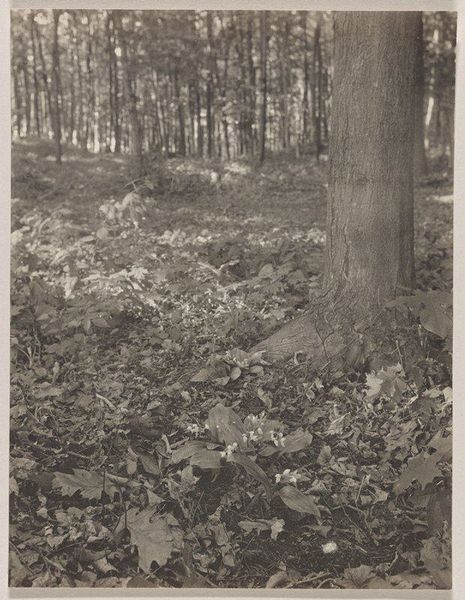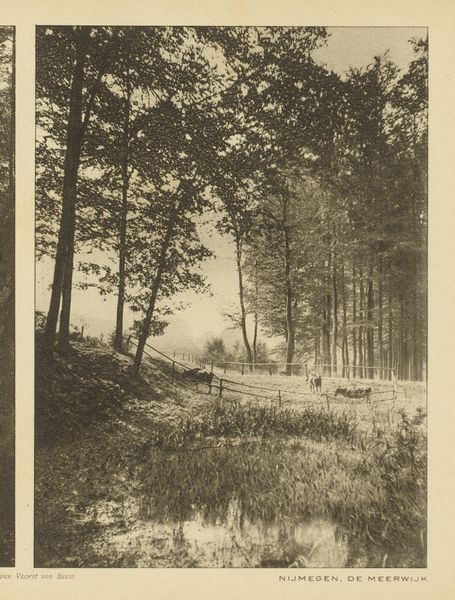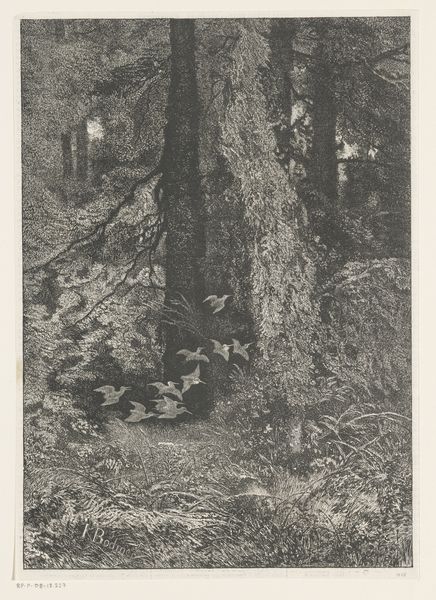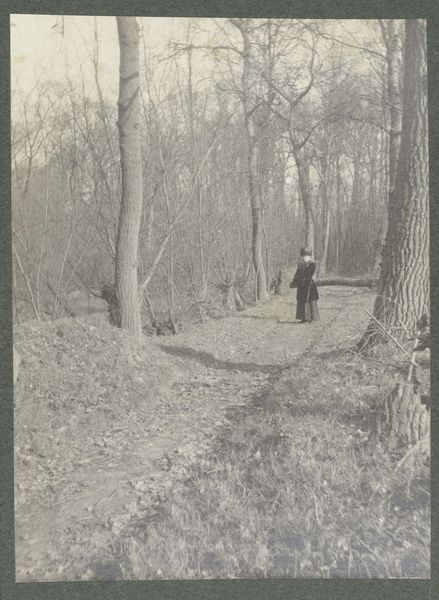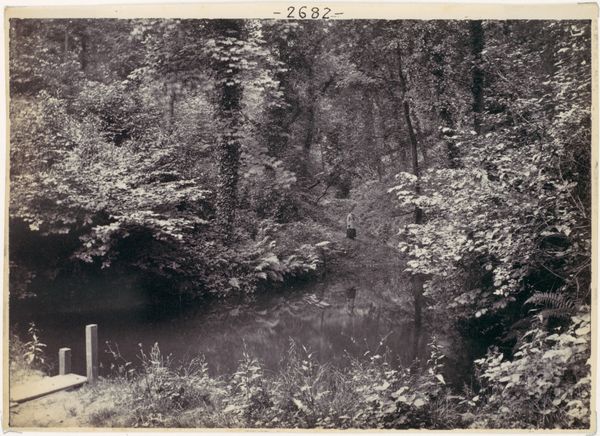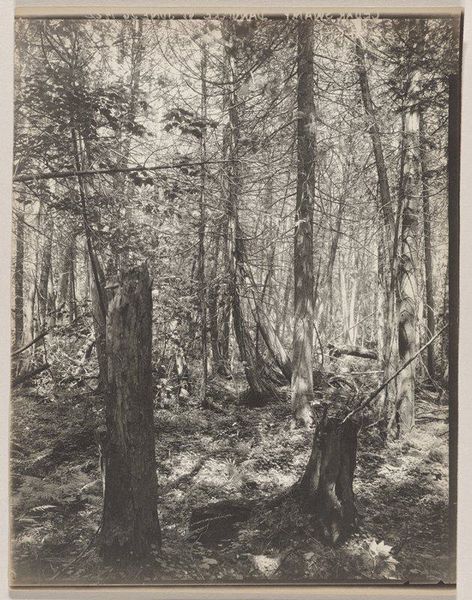
Olga, Marba en Eckart Titzenthaler, echtgenote en kinderen van de fotograaf, staand in een bos 1917 - 1919
0:00
0:00
Dimensions: height 83 mm, width 107 mm
Copyright: Rijks Museum: Open Domain
Editor: This is "Olga, Marba en Eckart Titzenthaler, echtgenote en kinderen van de fotograaf, staand in een bos," taken by Waldemar Titzenthaler sometime between 1917 and 1919. It's a black and white photograph depicting his wife and children standing in a forest. The image has a very staged and romantic feeling, almost dreamlike. How do you interpret this work? Curator: It's interesting that you perceive it as staged. The Pictorialist movement, to which Titzenthaler belonged, often deliberately created scenes that evoked emotion and allegory. Consider the context of World War I – the image presents an idealized vision of family and nature, perhaps as a form of solace amidst widespread upheaval. Does knowing the historical backdrop shift your reading of the subjects' expressions or the setting itself? Editor: That definitely adds another layer. The forest almost feels like a sanctuary, then, rather than just a pretty backdrop. Was this typical of photography at the time? To present an ideal rather than reality? Curator: Pictorialism, as a movement, actively pushed back against photography's capacity to simply document reality. They employed techniques such as soft focus and manipulated printing processes to give their photographs an artistic, painterly quality. This image normalizes specific social roles and expectations: What might this tranquil domesticity say about the roles assigned to women and children in that era, particularly within the confines of war? Editor: I see what you mean. There is a quietness to their presence, almost an expectation to simply *be* amidst the chaos rather than actively engage with it. I’m beginning to appreciate the power of this "staged" photograph to reveal complex social and gender dynamics. Curator: Exactly! By understanding the artistic choices within the historical context, we begin to decode the nuanced ways in which photography both reflected and shaped cultural ideologies of its time. Editor: Thank you. I'll never look at staged portraits the same way again.
Comments
No comments
Be the first to comment and join the conversation on the ultimate creative platform.
